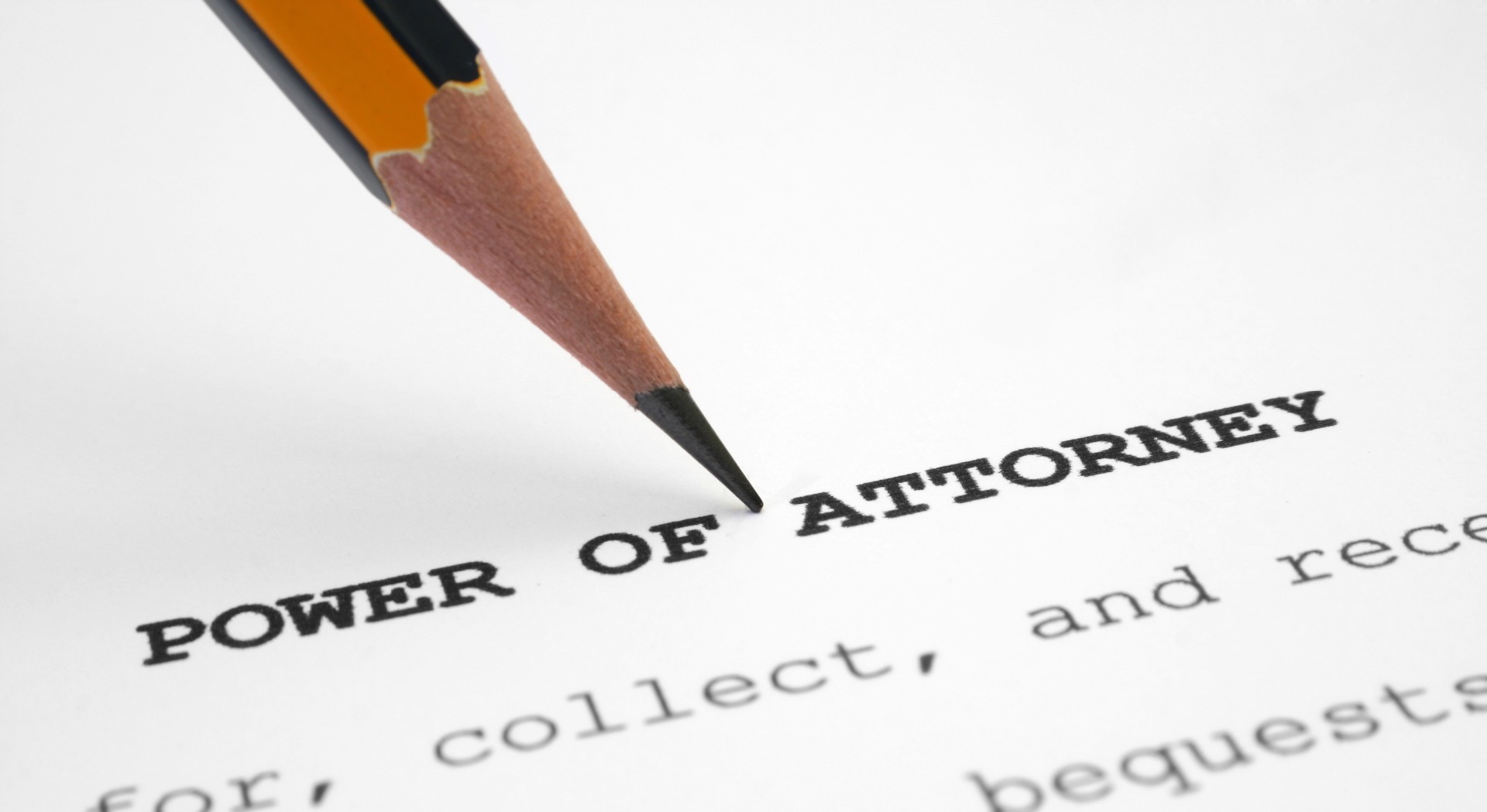MG Legal, Leading local Will writing Solicitors. The team that put you first. Contact us to speak to a solicitor today: 01772 783314 or email at: wills@mglegal.co.uk

Solicitors for the Elderly Accredited

SRA Regulated Solicitors

Decades of experience

Out-of-hours appointments

Home visits available
Making a Will has never been easier, with our expert Wills Solicitors.
To protect our family and loved ones, everybody needs a Will. Whether you want a simple Will or complex trust Wills, our Will writing solicitors are here to assist.
MG Legal's expert Will writing solicitors can draft your Will as quickly as you need, and as our solicitors have over 40 years' experience in Will drafting, you can be sure your Last Will and Testament will carry out your wishes when you're gone.
Request a callback
Our Will writing and estate planning services
All prices exclude VAT. We pride ourselves on our transparent fixed fees, with no hidden charges. Our Will writing fees include the free registration of your Will with Certainty, the National Will Register, and the free lifetime storage of your Will, with no costs payable when you retrieve this.
Home visit Will writing services
When it comes to making a Will, we believe it's important for everyone to have access to our team of local solicitors. If you aren't able to attend one of our offices, or if you would prefer to have a chat from the comfort of your own home, our Will writing solicitors can assist with home visits available by appointment.

Common questions our Solicitors are asked about Wills
A Will is a legal document, which sets out your wishes- both moral wishes and legally binding wishes- as to what happens to your estate after you have died. Your estate comprises all assets held in your sole name, and those held as tenants in common, at the date of your death. Your Will lets you control what happens to your assets, and make sure they pass to the people you intend them to.
There are different types of Wills available, and which Will is most appropriate for you will depend on your circumstances. For some people, a straightforward Will, leaving everything to one person or a handful of people, will meet their needs. For others, a Will incorporating trust provisions- such as property trust provisions or a discretionary trust- will better suit their requirements.
Rather than make a simple Will because it's easy, our Wills Solicitors encourage clients to make a Will which fulfills their needs, after receiving our Wills Solicitors' advice about the available options.
If you die without a valid Will, your estate distribution is decided by the Rules of Intestacy, contained within the Administration of Estates Act 1925 (as amended), and which apply to property which is capable of being left by your Will. This could include solely owned property or bank accounts, for example. In your Will, you can choose who benefits from your estate, as well as deciding who will administer your estate, known as your executors. A Will allows the appointment of guardians for minor children, and can also be useful to ensure there are the correct trusts in place if your children are not old enough to inherit directly- aged 18 and over in England and Wales.
If you and your loved ones are older, Wills can be an opportunity to make careful tax and care home fee planning decisions, giving you peace of mind that your affairs will be in order.
When you write your Will, your executor has the legal duty to dispose of your body in a way which is compatible with the law. You may express your wishes for how you want your body to be disposed of i.e. cremation or burial, how you wish the ashes to be disposed of, or provision for a gravestone, etc. Although normally executors will try their best to comply with your wishes, they are not legally bound to follow these.
In the UK there is no specific law against the scattering of ashes, provided you obtain permission from the landowner. However, for those of you who perhaps wish to have their ashes scattered in a specific place, do be aware that some local authorities now charge for scattering ashes in parks. If you want your ashes scattered in a river, do bear in mind the Environment Agency has a policy about this, which may impact whether your executors can fulfill your wishes.
Appointment of executors in your Will is a personal choice, and you may appoint individuals, such as your children, a firm of Solicitors, or a corporation. If you are choosing to appoint individuals as your executors, our Will drafting solicitors would point out that it is important to consider the proposed executor's age; it would make little sense to appoint somebody older than you, as they are more likely to predecease you. Instead, someone of the same or younger generations would be advisable.
The position of executor is a fiduciary appointment; that is to say that the person must be honest and diligent and must exercise their duty in good faith.
It is a common misconception that an executor of a Will cannot also be a beneficiary of a Will. It is, however, perfectly normal (and perfectly legal) to name the same person (or people) as both an executor and a beneficiary in your Will. It is important that the executor does not witness your Will, otherwise they will not be entitled to receive their inheritance, under statute.
To speak to our solicitors for Wills about our Will writing services, get in touch with us online here and speak to a member of our team within one working hour about our fixed-fee Will writing services.
Your Will may dispose of all assets held in your sole name, such as land and personal belongings, but can also dispose of intangible assets e.g. contractual rights, benefits and other interests which are capable of being transferred or assigned to another person. If you own property as “tenants in common” then your share of that property is also disposed of by your Will.
If you are a beneficial joint tenant of any assets, your interest passes automatically to the surviving joint owner on your death. In most cases this is likely to relate to your home, joint bank accounts, or investments you hold jointly with another person.
You should have a valid Will in place- even if you consider your wishes to be simple and you feel that telling your loved ones will be sufficient, sadly, this is not the case. In some cases, making a DIY Will can lead to complications after your death, and could lead to you not having a valid Will in place.
Our expert solicitors for Wills offer excellent fixed fee Will drafting to help ensure that your wishes are carried out after you have died. We also store your Will at no cost, so you know that it will be safely stored, when it's needed. We're also members of Certainty, the National Will Register, so we can register your Will at no cost to you. This helps to ensure that, after going to the effort- and cost- of making a Will, it is located by your executors in the future.
To discuss making a Will, complete our online enquiry form and a solicitor for Wills can contact you within one working hour to discuss your requirements. Alternatively, contact your local office to arrange an appointment.
A common question our Wills Solicitors are asked is whether people can include comments in their Wills, explaining why they have made certain decisions or gifts. Our solicitors never recommend this, as when a Will goes to Probate, which is always required when the deceased owned property, the Will becomes public record, and anyone can obtain a copy from the Probate Registry.
Instead, our Wills Solicitors recommend putting any private information in a separate letter, commonly referred to as a Letter of Wishes. Such a letter can set out more personal information, and can be shown to the relevant people, when required, after your death.
Indeed, a Letter of Wishes is also used when our Wills Solicitors prepare Wills incorporating a Discretionary Trust, as it gives a guide to the appointed Trustees as to how you planned for the money to be used under the terms of the trust.
You may wonder if it is necessary to have a separate letter. Our Wills Solicitors would explain it absolutely is. We have dealt with cases where the deceased made personal comments within their own homemade Will, and the Probate Registry refused to grant Probate until a redacted version of the Will had been prepared, and submitted in lieu of the original. That way, the personal comments were never made public.
How can our expert will writing solicitors help you today?
Remember, we’re not just experts at drafting Wills. Our team can provide specialist advice on all aspects of Wills, Trusts, Probate and Estate Administration. Click on the links below to find out more about the services our team offers.
MG Legal's Will Writing Guide

Your name and address
We will need to include your full name and, if applicable, any other names you are known by. For example, if your birth name is A B C Smith, but you usually go by B C Smith, we would usually include both names for clarity. We would also usually include your current address, to help identify that your Will belongs to you (in case there is more than one A B C Smith living in the same area).

Your Executors & Trustees
These are the people that you appoint to deal with your Estate after you have died. They will be responsible for a number of jobs, and you can read more about the full role of an Executor in our blog on the subject, here.
Our Wills solicitors would always advise clients to appoint someone that they trust to deal with their Estate. After all, this person will be responsible for ensuring that your wishes are carried out.
If you perhaps don’t have a close family member or friend that you would want to appoint, you can always choose to appoint a professional, such as our team of Wills Solicitors.
More often than not, people will appoint the same people as Executors and Trustees, and the clause in the Will just refers to the appointed people as both. However, if you wish to appoint separate people for both roles, you can. You Trustees, for example, would act in any Trusts of your Will (so, if one of your beneficiaries is a minor when you die, the Trustee would hold their share of the Estate until they attained the legal age to inherit themselves).

Funeral Wishes
Our Wills solicitors would recommend never going into too much detail in this section, as if you change your mind or your circumstances change, you don’t want to need to change your entire Will. Instead, we would generally only include a simple direction about whether you prefer cremation or burial or, preferably, we would not include these provisions at all. Instead, they can be typed or written into a separate note to your Executors to be placed alongside your final signed Will. The added benefit of this, is that if you change your mind in the future, you can always remove or alter the note.

Details of any Gifts
We will ask whether there are any personal items which you wish to gift to anybody. The most common types of gifts that our team sees is items such as jewellery, family memorabilia, sentimental items, or cars. We will need as much description about the gift, as possible.
Another option that our Wills Solicitors often discuss with our clients when they wish to make gifts of person items, is including a clause in your Will which leaves all of your personal items to your Trustees (also the same people, usually, as your Executors) for them to distribute in accordance with any wishes made known to them within 3 months of your death. This could take the form of a letter, verbal expressions made to them, or notes left on items.
You may also wish to include gifts of money- these are referred to as Pecuniary legacies. You could choose to leave a sum of money to charities, friends, family or an organisation. The amount you leave is up to you, however, it’s always worth noting that if your Estate value decreases (for example if you have to have care and the fees mean that your estate value has decreased), the gifts would not decrease, and therefore the remainder of your Estate passing to your residuary beneficiaries may also decrease.
To prevent this from happening, some people choose to leave their chosen legatees a percentage of their residuary estate, instead of an outright gift of money.

Your Residuary Estate
This is anything that is left after any liabilities, debts, testamentary expenses, funeral expenses, pecuniary legacies, and legal fees have been paid out.
You can choose as many people as you want to divide your residuary estate between, with our Wills Solicitors have seen Wills naming 35 people.
At this stage, our local solicitors for Wills would also discuss with you whether you wish to include any longstop provisions, in case the initial beneficiaries predecease you or the clause fails for any other reason. This could be as simple as a clause leaving everything to your initial residuary beneficiaries’ children, or you may want to name completely different people; the choice is yours.
Even though some Wills are more complicated, and may require additional information, the above is a list of the basic information that we would require from all of our clients when starting their Will-writing process.
When you contact our Wills Solicitors to discuss making a Will, we will arrange an initial appointment with you at your local office, or at your home, and we will talk you through the above points, step-by-step, letting you know if we need any further information.
To arrange an appointment, you can contact your local solicitors for Wills online, or email us to wills@mglegal.co.uk.
Why choose MG Legal?

Transparent fees.

We are the experts.

Multiple Office Locations.

Give us a call at any time.
Instruct the expertise of our Wills solicitors in Longridge, Lytham, Garstang, and Lancaster, with confidence that you will be provided with a five-star service from our dedicated team.
At MG Legal, our solicitors for Wills pride themselves on being experts in their field. The advice we give is honest, clear, and easy to understand. We are a small firm, which allows us to give your needs that personal touch, that each and every client deserves. At MG Legal, you will deal with the same team whenever you ‘phone the office, attend a meeting, or require advice, so you will never be passed around, from person to person. Our Wills and Probate department are a friendly and approachable team who will handle your matter, with care and attention, from start to finish.
Our reviews speak for themselves, confirming why you should choose MG Legal’s solicitors to handle your Will drafting. Take a look yourself. And remember, we offer home visits for our clients who are unable to get to the office. Get it right first time, with MG Legal- your local solicitors.
Wills FAQs
It is possible for you to direct that your body (or parts of it) are used for medical or scientific purposes after your death (in accordance with the Human Tissues Act 2004). If this is what you would want to happen, it is important to make sure that your family is aware of your wishes. You can include them in your Will, but you should also make enquiries with local science institutions or similar to see whether there are any steps you need to take now to register your interest.
This question is actually more common that you'd think, and appears to concern quite a few of the clients our solicitors for wills work with.
So, in order to put your mind at rest, and indeed, answer your question, our solicitors for wills are pleased to advise that at MG Legal's solicitors for wills we register all Wills drafted by our offices, with “Certainty” which is a National Wills Register. There is no charge to any of wills our clients for this service. Certainty do not receive a copy of the Will, we will simply record with Certainty that you have made a Will with our firm (the Will remains a private document and MG Legal will not release your Will at any time without the appropriate authority).
When writing your will, it is entirely up to you who your assets are left to, within reason. When our solicitors for wills discuss excluding a family member from a will, it is often easier to use an example to explain the process:
Jack has three children, Anna, Kim and Peter. His relationship with Peter has broken down and, as a consequence, Peter has had no contact with his father for 10 years. Jack therefore does not wish to make provision for Peter in his Will.
Jack is free to leave his estate to whomever he likes, however, this freedom is limited somewhat by statute. The Inheritance (Provision for Family and Dependants) Act 1975, provides that certain classes of people may apply for financial provision from a deceased’s estate, if they feel sufficient provision has not been made for them. This includes a spouse or civil partner, a former spouse or civil partner, who has not remarried or entered into another civil partnership, a child of the deceased, somebody treated as a child of the deceased, or any person who was being financially maintained by the deceased prior to his death.
The Court will take into account, among other things, the circumstances of the applicant, the size and nature of the estate and, where relevant, the conduct of the applicant.
To learn more about making a Will to incorporate your wishes, and speak to a solicitor for wills in a confidential and judgement-free way, simply contact us online here and speak to a solicitor for wills about our fixed-fee legal services.
Yes, this is a service that our solicitors for Wills offer to all our clients. There is no charge to appoint MG Legal as executors when making your Will with our specialist team. If we act in the administration of your estate, the work carried out would be chargeable at the fee earner’s standard hourly rate + VAT.
If you want to appoint MG Legal as your executors, then please contact our offices, for a confidential discussion about how we can help you.
If you are undecided, see our full discussion of the benefits of appointing a solicitor as the executor of your Will, here.
There are advantages in appointing professional executors. They should be skilled and experienced in the administration of estates (we would suggest that you check the professional qualifications of the staff to ensure they have the required expertise). A professional executor will charge a fee for their services and, in return for that fee, you can expect the estate to be administered by a fee earner who is familiar with the applicable laws, has practical experience and, of course, you will also have the security offered by the firm.
There is no limit on the number of executors you may appoint in your Will. However, Probate will only be granted to a maximum of 4 executors.
For practical purposes, it is usual for a person to appoint 2 executors in a Will, and to also perhaps consider appointing substitute executors. The substitute executors would act in the event that those first appointed either died before you or were otherwise unable or unwilling to act.
If you are looking for expert legal advice and assistance when writing your Will and appointing your executors, simply contact our solicitors for wills online here, and speak to a solicitor for wills within one working hour about how we can help you.
When our expert Wills, Trusts, Tax and Probate Solicitors are instructed to help a person make a new Will or amend their previous Will, our team will always include a clause in the new Will which revokes any previous Wills made (unless they have made a Will in another country which the client wants to remain valid, in which case any previous Wills expect the specific Will are revoked).
There is no need for a separate Deed of Revocation, or a separate statement to revoke the previous Will; correct signature of the new Will in the presence of two witnesses, who also sign, will be sufficient.
If you want to destroy your previous Will after your new Will has been correctly signed, this is your choice; you may feel that it offers an extra layer of protection against your previous Will being used as your final Will once you have died.
There may be two reasons why a Will is destroyed; either accidentally or to revoke it. If your Will is accidentally destroyed, it may be that it can still be declared valid. However, you should always seek advice from an expert Will writing solicitor to find out whether you should make a new Will if your old Will is destroyed.
It may be that your local solicitors for Wills suggests that you make a new Will in exactly the same terms as your previous Will, to ensure that there are no issues when you die. Obviously, if when making your new Will you decide that you want to change a few or all of the clauses, you could.
If you no longer want your Will to be valid, there are a few different options regarding destroying a will and revoking a will. You should seek advice about this.
Whilst you can ask someone to physically destroy your Will, an instruction alone to destroy a Will would not normally have the effect of revoking it. If you are unable to destroy your Will yourself, and you wish to destroy your Will so that your Estate passes under the Rules of Intestacy, contact our Wills, Trusts, Tax and Probate Solicitors to find out what you should do.
Since the COVID-19 Pandemic hit the nation, and everyone was told to stay at home wherever possible, there has been an increase in the number of people who have taken steps to update or make their Will. Throughout the pandemic, whilst restrictions have eased and tightened, those who are vulnerable have, in some cases, continued to shield.
How would it therefore be possible for these people to make a Will? Legislators considered this issue and introduced The Wills Act 1837 (Electronic Communication) (Amendment) (Coronavirus) Order 2020 SI 2020/952, which amended section 9 of the Wills Act 1837 – the section which deals with signature of Wills. This amendment meant that rather than requiring the physical presence of two witnesses when the testator signed their original Will, this could be done via an electronic means, such as a Zoom meeting. This amendment was put in place until 2022. The amendment did not change the number of witnesses required, or the law dictating who these witnesses can be (for example, a witness could not be a beneficiary of your Will or a minor).
Despite the fact that the Coronavirus restrictions have now changed, a further Amendment was made to the Wills Act (The Wills Act 1837 (Electronic Communications) (Amendment) Order 2022) extending the remote Will witnessing cutoff date to 31 January 2024. According to gov.uk, anyone isolating can have Wills witnessed virtually until this date, to allow the Law Commission time to consider potential reforms to the law surrounding Wills, and whether these laws should be made permanent. Research carried out by the Law Society suggests that 14% of legal professionals have made use of remote Will witnessing, which is a statistic the Law Commission will consider in their report.
Our team of Will drafting experts at MG Legal have made every effort during the pandemic to ensure that our client’s Wills were finalised efficiently and validly witnessed, visiting clients at their house and witnessing Will signatures through windows and doors to accommodate our client’s during a difficult time. Our team helped clients finalise their Wills and put their minds at rest from worrying about not having a valid or Will that correctly reflects their wishes in place.
At MG Legal, our Wills and Probate solicitors will continue to facilitate client’s Wills signings on a daily basis both in our offices and at home visits, however, we welcome the change to assist with those who are unable to meet in person to have a Will witnessed, such as those who are unwell and are unable to leave the house. If you are looking to update your Will or make a Will if you haven’t before, contact our specialist solicitors for Wills at your local office. Initial appointments can take place in your local office or via telephone, and we are happy to accommodate signature of your Will either through a home visit or at one of our offices.
We would always recommend having your Will witnessed in the physical presence of two witnesses, and will assist you with this so that you can finalise your Will as quickly as possible.
Expert Will writing Solicitors in England and Wales:
No matter where you are located across England and Wales, MG Legal's expert Will writing Solicitors are here to help you to achieve the best possible outcome in your legal matter.

Free Consultation

Nationwide Services

Decades of Experience

Solicitors for the Elderly

Multiple Office Locations

Fully-Qualified Solicitors


















